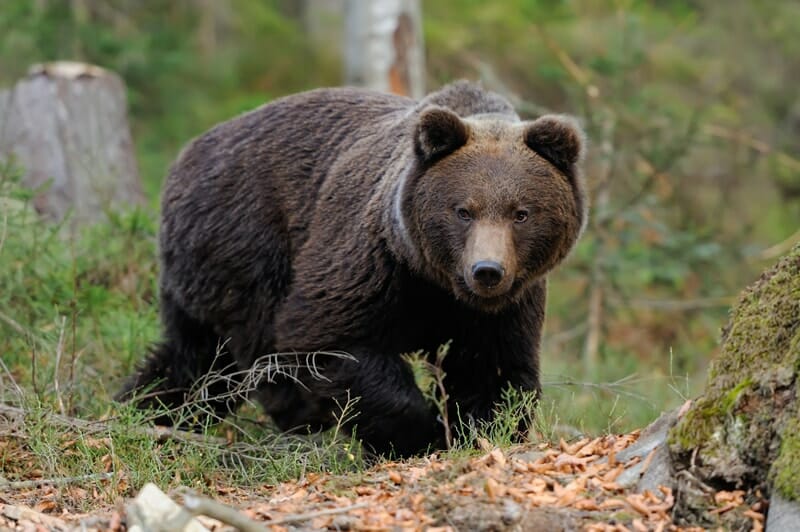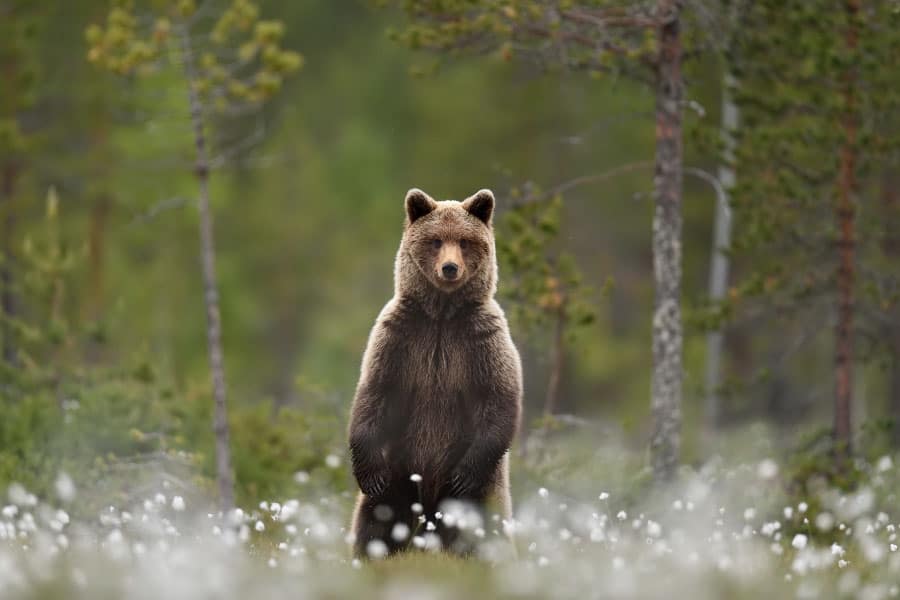Many people think that bears have a keen sense of smell, but how far away can they really smell food? A study done by the Department of Wildlife Ecology at the University of Wisconsin found that black bears can smell food up to 20 miles away!
How Acute is a Bear’s Sense of Smell?

Source: wildernessjunkie.net
Bears have an acute sense of smell and can detect odors from far away. The average bear’s sense of smell is seven times stronger than a human’s. Bears can smell food from up to 20 miles away.
When a bear smells food, it will often follow its nose to the source of the odor. Bears have been known to travel long distances in search of a meal. In some cases, bears have even been known to follow human trails in search of food.
While a bear’s sense of smell is impressive, it is not the only factor that determines how far away a bear can smell food. Wind direction and, to a lesser extent, temperature also play a role in how far away a bear can smell food.
How Does this Compare to Other Animals?
Bears have an acute sense of smell and can detect odors from far away. They are able to smell food from up to miles away, which is much farther than other animals.
Other animals, such as dogs, have a sense of smell that is only about one-tenth as strong as a bear’s. This means that they can only detect odors that are within ten feet of them.
The difference in the strength of these two senses is due to the different shapes and sizes of the animals’ noses. Bears have long, thin noses that allow them to take in more air and, therefore, more smells. Dogs have shorter, stubbier noses that limit the amount of air they can take in.
How Does this Help Bears in the Wild?

Source: outforia.com
It is thought that bears can smell food from up to 20 miles away. This keen sense of smell helps them to find food, and also avoid predators.
In the wild, bears use their sense of smell to find food sources, such as ripe fruits and nuts, and also to avoid predators. By being able to smell potential threats from a distance, bears can stay safe and out of harm’s way.
What Other Senses Do Bears Rely On?
In addition to their acute sense of smell, bears also have an excellent sense of hearing and vision. They use these senses to locate food, avoid predators, and navigate their environment.
Bears have large ears that are highly sensitive to sound. They can hear sounds that are far away and low in frequency, such as the calls of other animals. This helps them to locate potential sources of food.
Bears also have good eyesight. They can see colors and objects that are far away. This helps them to find ripe fruits and nuts, as well as to avoid predators.
How Far Away Can Bears Smell Food?

Source: craftofmanhood.com
Bears have an incredible sense of smell, and can sniff out food from far away.
While the exact range depends on factors like wind direction and the strength of the scent, bears have been known to smell food up to 20 miles away!
So, if you’re planning on cooking in bear country, be sure to do so far away from your campsite, and keep a clean camp to avoid attracting bears with tempting smells. Using bear canisters for backpacking trips is also a good idea.
What Do Bears Use Their Sense of Smell for?
Bears have an excellent sense of smell and can use it for a variety of purposes. For example, bears can smell food from far away and use their sense of smell to help them find a mate. Additionally, a mother bear can use her sense of smell to find her cubs if they become separated.
Some bear species, such as grizzly bears, will also use their sense of smell to detect potential threats. If a bear smells something that it perceives to be dangerous, it may choose to avoid the area entirely.
What Other Animals Have a Good Sense of Smell?
Bears aren’t the only animals with a keen sense of smell—in fact, many animals have an acute sense of smell that rivals that of bears. Animals such as dogs, wolves, and coyotes have an excellent sense of smell that they use to track down prey. Even smaller animals like rodents and rabbits have a good sense of smell that helps them find food and avoid predators.
Bear Canisters
When you’re out backpacking in bear country, it’s important to take steps to prevent your food from attracting bears. One way to do this is to use a bear canister. Bear canisters are airtight and waterproof containers that are specifically designed to keep bears from being able to smell or access your food.
There are a few different types of bear canisters on the market, but they all work in essentially the same way. To use one, you simply put all of your food (and anything else that might have an odor, like toothpaste or soap) into the canister and then close it up. The canister should then be placed away from your campsite, preferably upwind so that bears can’t smell it.
Bear canisters are not foolproof, but they are one of the best ways to prevent bears from getting into your food. If you’re planning on hiking in bear country, be sure to pack a bear canister!
Conclusion
It is amazing how far away bears can smell food from. This ability to smell food from long distances away gives them a big advantage in the wild as they are able to find food that other animals may not be able to smell. This keen sense of smell also makes it difficult for humans to hide food from bears, which is why it is important to be careful when storing food in areas where bears live.
